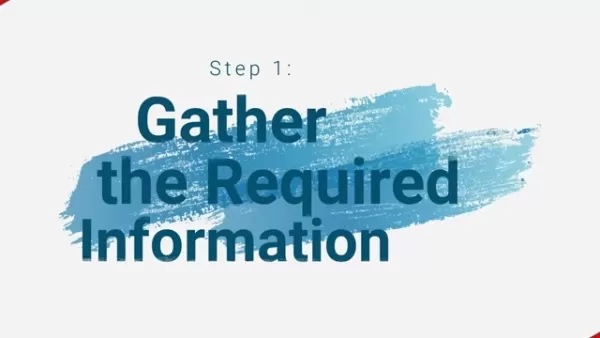AI Use in Crime Reporting by Police: Potential Pitfalls Explored

The use of AI chatbots by some US police departments to generate crime reports is a double-edged sword, promising efficiency but fraught with potential pitfalls. Imagine the allure of cutting report-writing time down to mere seconds, as experienced by Oklahoma City police officers using Draft One, an AI tool that leverages OpenAI's GPT-4 model. It sounds revolutionary, doesn't it? But as with any technological leap, there are risks lurking beneath the surface.
Let's dive into what could possibly go wrong with this tech-forward approach. For starters, AI systems, like ChatGPT, have been known to "hallucinate," meaning they can generate information that's not entirely factual. While Axon, the company behind Draft One, claims to have mitigated this issue by adjusting the "creativity dial," can we really trust that every report will be accurate? It's a gamble, and in the world of law enforcement, accuracy is non-negotiable.
The use of Draft One is currently limited to "minor" incidents in Oklahoma City, with no felonies or violent crimes being processed through the AI. But other departments, such as those in Fort Collins, Colorado, and Lafayette, Indiana, are pushing the envelope by using it across the board. This raises a red flag: if AI is used for all cases, how can we ensure the technology doesn't compromise the integrity of these reports?
Concerns from Experts
Legal scholar Andrew Ferguson has voiced concerns about automation leading to less careful report writing by officers. It's a valid point—relying on technology might make us complacent, and in policing, every detail matters. Furthermore, there's the broader issue of AI systems perpetuating systemic biases. Research has shown that AI-driven tools, if not carefully managed, can worsen discrimination in various fields, including hiring. Could the same happen in law enforcement?
Axon insists that every report generated by Draft One must be reviewed and approved by a human officer, a safeguard against errors and biases. But this still leaves room for human error, which is already a known issue in policing. And what about the AI itself? Linguists have found that large language models like GPT-4 can embody covert racism and perpetuate dialect prejudice, particularly with marginalized languages like African American English. This is a serious concern when it comes to ensuring fair and unbiased policing.
Testing and Accountability
Axon has taken steps to address these concerns, conducting internal studies to test for racial biases in Draft One reports. They found no significant differences between AI-generated reports and the original transcripts. But is this enough? The company is also exploring the use of computer vision to summarize video footage, though CEO Rick Smith acknowledges the sensitivities around policing and race, indicating a cautious approach to this technology.
Despite these efforts, the broader impact of AI in policing remains a question mark. Axon's goal is to reduce gun-related deaths between police and civilians by 50%, but statistics from the Washington Post's police shootings database show an increase in police killings since 2020, even with widespread body camera adoption. This suggests that technology alone isn't the solution to complex societal issues.
As more police departments consider adopting tools like Draft One, the potential benefits and risks will continue to be debated. It's a fascinating time, filled with possibilities but also uncertainties. The key will be to balance innovation with accountability, ensuring that AI enhances rather than undermines the integrity of law enforcement.
Related article
 AI-Powered Cover Letters: Expert Guide for Journal Submissions
In today's competitive academic publishing environment, crafting an effective cover letter can make the crucial difference in your manuscript's acceptance. Discover how AI-powered tools like ChatGPT can streamline this essential task, helping you cre
AI-Powered Cover Letters: Expert Guide for Journal Submissions
In today's competitive academic publishing environment, crafting an effective cover letter can make the crucial difference in your manuscript's acceptance. Discover how AI-powered tools like ChatGPT can streamline this essential task, helping you cre
 US to Sanction Foreign Officials Over Social Media Regulations
US Takes Stand Against Global Digital Content Regulations
The State Department issued a sharp diplomatic rebuke this week targeting European digital governance policies, signaling escalating tensions over control of online platforms. Secretary Marco
US to Sanction Foreign Officials Over Social Media Regulations
US Takes Stand Against Global Digital Content Regulations
The State Department issued a sharp diplomatic rebuke this week targeting European digital governance policies, signaling escalating tensions over control of online platforms. Secretary Marco
 Ultimate Guide to AI-Powered YouTube Video Summarizers
In our information-rich digital landscape, AI-powered YouTube video summarizers have become indispensable for efficient content consumption. This in-depth guide explores how to build a sophisticated summarization tool using cutting-edge NLP technolog
Comments (31)
0/200
Ultimate Guide to AI-Powered YouTube Video Summarizers
In our information-rich digital landscape, AI-powered YouTube video summarizers have become indispensable for efficient content consumption. This in-depth guide explores how to build a sophisticated summarization tool using cutting-edge NLP technolog
Comments (31)
0/200
![WalterBaker]() WalterBaker
WalterBaker
 August 26, 2025 at 11:01:27 PM EDT
August 26, 2025 at 11:01:27 PM EDT
This AI crime reporting stuff sounds like a game-changer, but I’m skeptical. Can a chatbot really capture the nuance of a crime scene without screwing up details? I mean, efficiency’s great, but if it’s spitting out generic reports, that’s a lawsuit waiting to happen. 😬 Curious to see how they handle the ethical side of this.


 0
0
![HarryMartínez]() HarryMartínez
HarryMartínez
 April 23, 2025 at 1:34:31 PM EDT
April 23, 2025 at 1:34:31 PM EDT
Die Idee, dass AI Polizeiberichte schreibt, klingt cool, aber auch ein bisschen beängstigend. Was, wenn das AI die Fakten vermasselt? Die Polizei von Oklahoma City scheint dabei zu sein, aber ich bin mir noch nicht sicher, ob ich es vertraue. Braucht mehr Tests, denke ich! 🤔


 0
0
![AnthonyRoberts]() AnthonyRoberts
AnthonyRoberts
 April 23, 2025 at 3:06:58 AM EDT
April 23, 2025 at 3:06:58 AM EDT
Using AI for crime reports sounds cool, but man, the potential for errors is scary! Imagine if the AI messes up and someone gets wrongly accused. Oklahoma City's police are using it, but I'm not sure I trust it yet. Maybe with more testing, it could be safer? 🤔👮♂️


 0
0
![PeterMartinez]() PeterMartinez
PeterMartinez
 April 22, 2025 at 9:58:41 AM EDT
April 22, 2025 at 9:58:41 AM EDT
Usar IA para relatórios de crimes parece legal, mas cara, a possibilidade de erros é assustadora! Imagina se a IA erra e alguém é acusado injustamente. A polícia de Oklahoma City está usando, mas não tenho certeza se confio nisso ainda. Talvez com mais testes, possa ser mais seguro? 🤔👮♂️


 0
0
![RoyLopez]() RoyLopez
RoyLopez
 April 21, 2025 at 10:56:00 PM EDT
April 21, 2025 at 10:56:00 PM EDT
범죄 보고서에 AI를 사용하는 것이 멋지게 들리지만, 오류의 가능성은 무섭네요! AI가 잘못하면 누군가가 잘못 고발될 수도 있어요. 오클라호마 시티 경찰이 사용하고 있지만, 아직 믿을 수 없어요. 더 많은 테스트를 하면 안전해질까요? 🤔👮♂️


 0
0
![EricNelson]() EricNelson
EricNelson
 April 21, 2025 at 10:51:47 PM EDT
April 21, 2025 at 10:51:47 PM EDT
A ideia de um AI escrever relatórios de crimes parece legal, mas também é assustadora. E se o AI errar os fatos? A polícia de Oklahoma City parece estar a bordo, mas eu ainda não confio muito. Precisa de mais testes, acho eu! 🤔


 0
0

The use of AI chatbots by some US police departments to generate crime reports is a double-edged sword, promising efficiency but fraught with potential pitfalls. Imagine the allure of cutting report-writing time down to mere seconds, as experienced by Oklahoma City police officers using Draft One, an AI tool that leverages OpenAI's GPT-4 model. It sounds revolutionary, doesn't it? But as with any technological leap, there are risks lurking beneath the surface.
Let's dive into what could possibly go wrong with this tech-forward approach. For starters, AI systems, like ChatGPT, have been known to "hallucinate," meaning they can generate information that's not entirely factual. While Axon, the company behind Draft One, claims to have mitigated this issue by adjusting the "creativity dial," can we really trust that every report will be accurate? It's a gamble, and in the world of law enforcement, accuracy is non-negotiable.
The use of Draft One is currently limited to "minor" incidents in Oklahoma City, with no felonies or violent crimes being processed through the AI. But other departments, such as those in Fort Collins, Colorado, and Lafayette, Indiana, are pushing the envelope by using it across the board. This raises a red flag: if AI is used for all cases, how can we ensure the technology doesn't compromise the integrity of these reports?
Concerns from Experts
Legal scholar Andrew Ferguson has voiced concerns about automation leading to less careful report writing by officers. It's a valid point—relying on technology might make us complacent, and in policing, every detail matters. Furthermore, there's the broader issue of AI systems perpetuating systemic biases. Research has shown that AI-driven tools, if not carefully managed, can worsen discrimination in various fields, including hiring. Could the same happen in law enforcement?
Axon insists that every report generated by Draft One must be reviewed and approved by a human officer, a safeguard against errors and biases. But this still leaves room for human error, which is already a known issue in policing. And what about the AI itself? Linguists have found that large language models like GPT-4 can embody covert racism and perpetuate dialect prejudice, particularly with marginalized languages like African American English. This is a serious concern when it comes to ensuring fair and unbiased policing.
Testing and Accountability
Axon has taken steps to address these concerns, conducting internal studies to test for racial biases in Draft One reports. They found no significant differences between AI-generated reports and the original transcripts. But is this enough? The company is also exploring the use of computer vision to summarize video footage, though CEO Rick Smith acknowledges the sensitivities around policing and race, indicating a cautious approach to this technology.
Despite these efforts, the broader impact of AI in policing remains a question mark. Axon's goal is to reduce gun-related deaths between police and civilians by 50%, but statistics from the Washington Post's police shootings database show an increase in police killings since 2020, even with widespread body camera adoption. This suggests that technology alone isn't the solution to complex societal issues.
As more police departments consider adopting tools like Draft One, the potential benefits and risks will continue to be debated. It's a fascinating time, filled with possibilities but also uncertainties. The key will be to balance innovation with accountability, ensuring that AI enhances rather than undermines the integrity of law enforcement.
 AI-Powered Cover Letters: Expert Guide for Journal Submissions
In today's competitive academic publishing environment, crafting an effective cover letter can make the crucial difference in your manuscript's acceptance. Discover how AI-powered tools like ChatGPT can streamline this essential task, helping you cre
AI-Powered Cover Letters: Expert Guide for Journal Submissions
In today's competitive academic publishing environment, crafting an effective cover letter can make the crucial difference in your manuscript's acceptance. Discover how AI-powered tools like ChatGPT can streamline this essential task, helping you cre
 US to Sanction Foreign Officials Over Social Media Regulations
US Takes Stand Against Global Digital Content Regulations
The State Department issued a sharp diplomatic rebuke this week targeting European digital governance policies, signaling escalating tensions over control of online platforms. Secretary Marco
US to Sanction Foreign Officials Over Social Media Regulations
US Takes Stand Against Global Digital Content Regulations
The State Department issued a sharp diplomatic rebuke this week targeting European digital governance policies, signaling escalating tensions over control of online platforms. Secretary Marco
 Ultimate Guide to AI-Powered YouTube Video Summarizers
In our information-rich digital landscape, AI-powered YouTube video summarizers have become indispensable for efficient content consumption. This in-depth guide explores how to build a sophisticated summarization tool using cutting-edge NLP technolog
Ultimate Guide to AI-Powered YouTube Video Summarizers
In our information-rich digital landscape, AI-powered YouTube video summarizers have become indispensable for efficient content consumption. This in-depth guide explores how to build a sophisticated summarization tool using cutting-edge NLP technolog
 August 26, 2025 at 11:01:27 PM EDT
August 26, 2025 at 11:01:27 PM EDT
This AI crime reporting stuff sounds like a game-changer, but I’m skeptical. Can a chatbot really capture the nuance of a crime scene without screwing up details? I mean, efficiency’s great, but if it’s spitting out generic reports, that’s a lawsuit waiting to happen. 😬 Curious to see how they handle the ethical side of this.


 0
0
 April 23, 2025 at 1:34:31 PM EDT
April 23, 2025 at 1:34:31 PM EDT
Die Idee, dass AI Polizeiberichte schreibt, klingt cool, aber auch ein bisschen beängstigend. Was, wenn das AI die Fakten vermasselt? Die Polizei von Oklahoma City scheint dabei zu sein, aber ich bin mir noch nicht sicher, ob ich es vertraue. Braucht mehr Tests, denke ich! 🤔


 0
0
 April 23, 2025 at 3:06:58 AM EDT
April 23, 2025 at 3:06:58 AM EDT
Using AI for crime reports sounds cool, but man, the potential for errors is scary! Imagine if the AI messes up and someone gets wrongly accused. Oklahoma City's police are using it, but I'm not sure I trust it yet. Maybe with more testing, it could be safer? 🤔👮♂️


 0
0
 April 22, 2025 at 9:58:41 AM EDT
April 22, 2025 at 9:58:41 AM EDT
Usar IA para relatórios de crimes parece legal, mas cara, a possibilidade de erros é assustadora! Imagina se a IA erra e alguém é acusado injustamente. A polícia de Oklahoma City está usando, mas não tenho certeza se confio nisso ainda. Talvez com mais testes, possa ser mais seguro? 🤔👮♂️


 0
0
 April 21, 2025 at 10:56:00 PM EDT
April 21, 2025 at 10:56:00 PM EDT
범죄 보고서에 AI를 사용하는 것이 멋지게 들리지만, 오류의 가능성은 무섭네요! AI가 잘못하면 누군가가 잘못 고발될 수도 있어요. 오클라호마 시티 경찰이 사용하고 있지만, 아직 믿을 수 없어요. 더 많은 테스트를 하면 안전해질까요? 🤔👮♂️


 0
0
 April 21, 2025 at 10:51:47 PM EDT
April 21, 2025 at 10:51:47 PM EDT
A ideia de um AI escrever relatórios de crimes parece legal, mas também é assustadora. E se o AI errar os fatos? A polícia de Oklahoma City parece estar a bordo, mas eu ainda não confio muito. Precisa de mais testes, acho eu! 🤔


 0
0





























